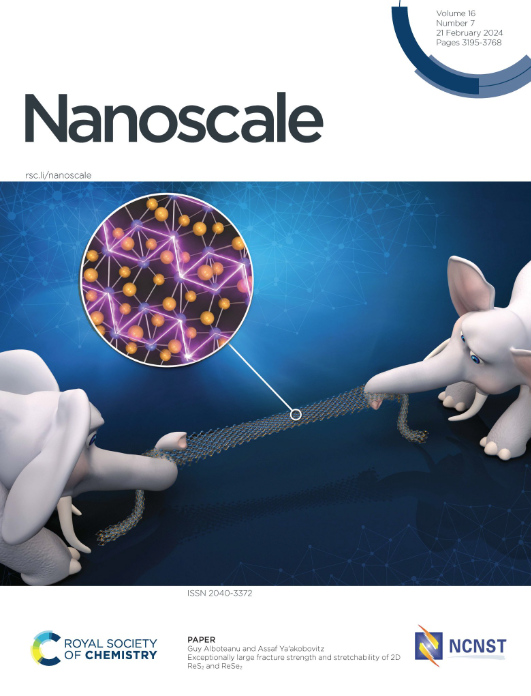基于水凝胶的多模态健康监测传感器:从材料设计到智能传感
IF 5.1
3区 材料科学
Q1 CHEMISTRY, MULTIDISCIPLINARY
引用次数: 0
摘要
由于其生物相容性、可调节性和刺激反应性,水凝胶是一种很有前途的柔性健康监测材料。然而,传统的水凝胶传感器在长期稳定性、信号保真度和高级功能集成方面存在局限性。本文通过综合材料设计和智能传感的最新进展,概述了基于水凝胶的健康监测的路线图。我们分析了增强水凝胶性能的策略(稳健性、电导率、稳定性、生物相容性),并详细介绍了物理(应变、压力、温度、荧光)和化学(汗液生物标志物、pH值、氧)信号的多模态传感机制。该综述强调了水凝胶与以下技术的整合:(1)通过摩擦电纳米发电机实现自主操作的自供电传感;(2)闭环诊疗平台;(3)用于高级信号解释和诊断的人工智能(AI)。这些改进使表皮电子学、智能绷带和植入式设备的应用成为可能。尽管取得了进展,但在环境稳定性、集成多模态传感和植入式系统的临床转化方面仍然存在挑战。解决这些问题需要跨学科合作,以推动水凝胶平台走向自主、个性化和精准医疗。本文章由计算机程序翻译,如有差异,请以英文原文为准。
Hydrogel-based Sensors for Multimodal Health Monitoring: From Material Design to Intelligent Sensing
Hydrogels, due to their biocompatibility, tunability, and stimulus-responsiveness, are promising materials for flexible health monitoring. However, traditional hydrogel sensors suffer from limitations in long-term stability, signal fidelity, and integration of advanced functionalities. This review outlines a roadmap for hydrogel-based health monitoring by synthesizing recent advances in material design and intelligent sensing. We analyze strategies for enhancing hydrogel performance (robustness, conductivity, stability, biocompatibility) and detail multimodal sensing mechanisms for physical (strain, pressure, temperature, fluorescence) and chemical (sweat biomarkers, pH, oxygen) signals. The review emphasizes the integration of hydrogels with technologies like: (1) self-powered sensing via triboelectric nanogenerators for autonomous operation; (2) closed-loop diagnosis-therapy platforms; and (3) artificial intelligence (AI) for advanced signal interpretation and diagnostics. These improvements enable applications in epidermal electronics, smart bandages, and implantable devices. Despite progress, challenges remain in environmental stability, integrated multimodal sensing, and clinical translation of implantable systems. Addressing these requires interdisciplinary collaboration to advance hydrogel platforms toward autonomous, personalized, and precision medicine.
求助全文
通过发布文献求助,成功后即可免费获取论文全文。
去求助
来源期刊

Nanoscale
CHEMISTRY, MULTIDISCIPLINARY-NANOSCIENCE & NANOTECHNOLOGY
CiteScore
12.10
自引率
3.00%
发文量
1628
审稿时长
1.6 months
期刊介绍:
Nanoscale is a high-impact international journal, publishing high-quality research across nanoscience and nanotechnology. Nanoscale publishes a full mix of research articles on experimental and theoretical work, including reviews, communications, and full papers.Highly interdisciplinary, this journal appeals to scientists, researchers and professionals interested in nanoscience and nanotechnology, quantum materials and quantum technology, including the areas of physics, chemistry, biology, medicine, materials, energy/environment, information technology, detection science, healthcare and drug discovery, and electronics.
 求助内容:
求助内容: 应助结果提醒方式:
应助结果提醒方式:


